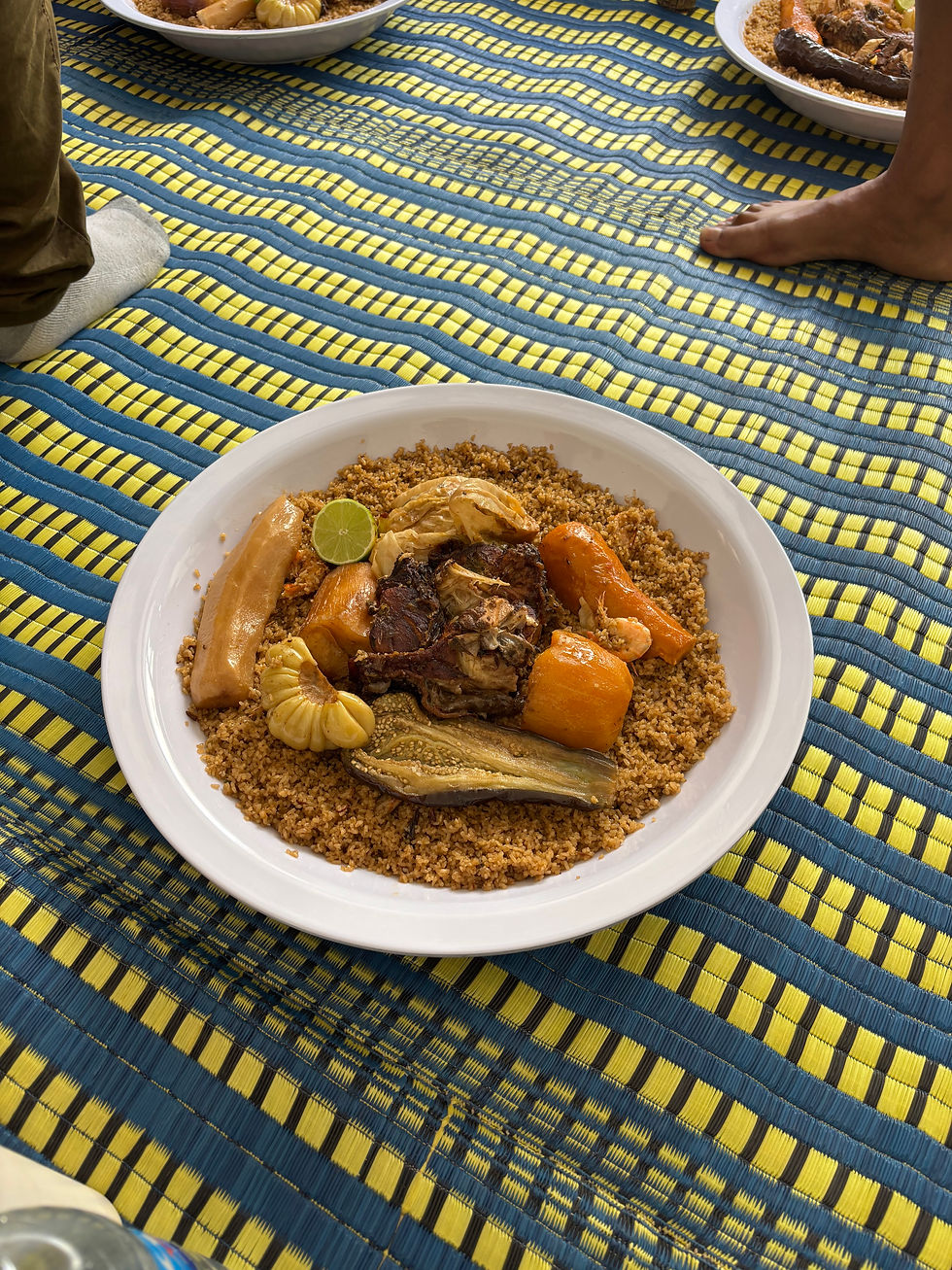Day 4 in Senegal: Rethinking Reciprocity in Homestays
- Joni Roberts
- Jul 18, 2025
- 3 min read

Today’s reflections in Senegal revolved around a central and sometimes uncomfortable question: What does reciprocity actually look like when a student stays in someone’s home during a study abroad experience? As we discussed, reciprocity is more than just a word—it’s a relationship, a responsibility, and a powerful opportunity to disrupt the often one-sided nature of global exchange.
In the context of our homestays, we began unpacking how American students are typically accustomed to privacy, independence, and a kind of transactional lifestyle. Many would prefer a hotel—somewhere predictable, private, and detached. But living with a family, especially in a cultural setting where young people live at home until marriage and family bonds are deep and enduring, requires a different kind of presence. It requires humility. It requires students to receive differently.
One thing that stood out today was the sacredness of land. In discussing environmental challenges, someone raised a common question heard in Western circles: “Why don’t people just move if the area floods?” But for so many communities here, land is not just property—it’s identity. It’s where ancestors are buried, where stories are rooted, where culture is passed down. Land is sacred, not disposable. You fight for it because it holds the spirit of who you are. This powerful understanding forces us to look differently at the spaces we are invited into.
Our hosts are not hotel managers. They are families with histories, traditions, and responsibilities. As one participant put it today, “You cannot pay a person who opens their home to you.” Taranga, the Wolof word for “hospitality,” carries a deeper meaning: “My home is your home.” It’s not a slogan—it’s a deeply cultural ethic of welcome and care. But how are we, as visiting students, responding to that ethic?
We talked about Buck, another Wolof concept centered on sharing and acceptance. The question we sat with was: How can we, as students, contribute meaningfully to this exchange so that it is not extractive? Reciprocity cannot be about money. You can’t buy belonging. But you can participate. That might mean helping with household chores, playing with the children, cooking meals, or simply showing up in the daily rhythms of life—not as a guest, but as a member of the household.
This exchange is especially important to consider when we think about how we prepare both students and host families. Living in a middle-class home in an urban Senegalese setting may still fall below an American student’s expectations. A family might keep animals, or the infrastructure may be different than what students are used to. Without proper preparation, students may unintentionally carry attitudes of judgment or superiority into spaces meant to foster mutual learning and respect. At the same time, host families may feel used or unappreciated if students disengage or fail to contribute.
These tensions invite us to ask: Is there a way to do study abroad justly? What would it mean to decolonize study away programs—to stop centering the comfort and growth of the student at the expense of the host community? True reciprocity must ask both parties to give and receive with intention. But perhaps the greater burden is on the guest—to listen, to learn, to live with gratitude and curiosity.
Maybe the most profound takeaway from today was this: Reciprocity is not a checklist. It’s a commitment. A student cannot “repay” a host for what is given, because what is given—hospitality, love, culture, land—is priceless. But students can show up. They can wash dishes. They can walk to market. They can ask questions and tell stories and sit in silence with respect. They can become part of a home, not just take from it.
Reciprocity, then, isn’t a transaction. It’s a way of being. And in this, we all have something to give.




Comments